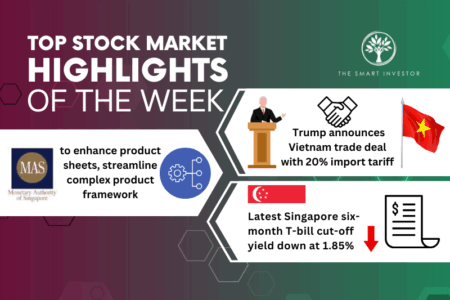Share buybacks is one of the more divisive topics in investing.
If you’re not familiar with the topic, share buybacks refer to a company repurchasing its own shares. Put another way, buybacks occur when the company uses its cash to purchase its own shares in the open market.
Simple economics suggests that share buybacks boost share prices by reducing the number of outstanding shares in the market. Fewer outstanding shares means remaining shareholders now own a larger piece of the pie.
However, share buybacks also reduce the company’s cash position. As such, the size of the pie is also smaller after share buybacks.
So when are share buybacks good for shareholders and when are they detrimental?
When do share buybacks make sense?
Share buybacks can benefit shareholders if they tick certain boxes. The great Warren Buffett is a big fan of buybacks at the right price. He once said,
“The best use of cash, if there is not another good use for it in business, if the stock is underpriced is a repurchase.”
One advantage share buybacks have over dividends is that share buybacks reward shareholders in a more tax-effective manner in certain countries. In the US, local shareholders are taxed on dividends, while foreign shareholders from certain jurisdictions incur a 30% withholding tax. These taxes invariably reduce shareholder’s returns. But with share buybacks, companies can reduce their shares outstanding without incurring any tax expenses.
Share buybacks should also be most beneficial when shares are bought back below their true value. Apple, for instance, has a share buyback plan that reduced the total shares outstanding of the company. The share buybacks were made at strategic periods when shares of Apple traded at unfairly low valuations.
Competing for capital
But share buybacks should only be undertaken when it is the best use of capital. On top of buybacks, a company has so many ways to deploy its cash, such as paying dividends, reinvesting the cash into the company, and acquiring other firms. Management, hence, needs to examine each possibility before deciding which is the best way to allocate capital. Jamie Dimon, CEO of JP Morgan Chase, reiterated:
“Buybacks should not be done at the expense of properly investing in our company.”
Again, Apple is a great example of buybacks done right. The iPhone maker generated more than US$50 billion in free cash flow each year for the past few years. Its shares were trading well below what the management believed to be its intrinsic value. As a result of its share repurchase plan, despite a fall in net income in the fourth quarter of fiscal 2019, Apple still managed to post a slight increase in earnings per share.
With more than US$100 billion in net cash, finding ways to put the capital to use can be a tough ask for Apple. That’s why I believe Apple’s decision to use the cash for buybacks when its share price was depressed is a prudent use of its excess cash.
When are share buybacks bad?
As mentioned at the start, share buybacks can be bad for shareholders too. This can happen when companies decide to pursue buybacks for the wrong reasons.
Below are some commonly cited but bad reasons I’ve come across that companies use to validate their buyback plan:
- To prop up their share price
- As a means to negate the impact of dilution due to share-based compensation
- To fend off an acquirer
- To boost earnings per share
- Because they have run out of ideas for the cash
Such companies do not take into account whether the shares are cheap or not. Simply buying back shares to boost earnings per share or prop up the share price is not good to shareholders if the stock is overpriced.
Worse still, companies that buy back shares so that they can negate the impact of dilution without thinking about the stock price will invariably hurt shareholders.
I also believe that companies that use debt to make buybacks are asking for trouble. Buybacks should only be made when the company has excess cash and as a way to reward shareholders.
In addition, in Singapore, paying dividends is just as beneficial to shareholders as buybacks. Dividends in Singapore are not taxed and by paying out dividends, shareholders can decide for themselves if they wish to reinvest the dividends back into the company by buying more shares.
Get Smart: Doing it right
Buffett is a big fan of share buybacks and with good reason too.
It is a tax-efficient way (in certain countries) of rewarding shareholders and is a great way to allocate capital if the company’s shares are trading below its true value.
However, buybacks can also harm investors if the company buys back shares that are overpriced or do not provide a good return on capital.
As investors, we should not assume that buybacks are always the most efficient use of capital.
We need to look deeper into the decision-making process to assess if management is really making the best possible capital allocation decision for growing shareholder value over the long-term.
Get more stock updates on our Facebook page or Telegram. Click here to like and follow us on Facebook and here for our Telegram group.
If you’d like to learn more investing concepts, and how to apply them to your investing needs, sign up for our free investing education newsletter, Get Smart! Click HERE to sign up now.
Note: An earlier version of this article was published at The Good Investors, a personal blog run by our friends.
Disclosure: Jeremy China does not own any of the stocks mentioned




